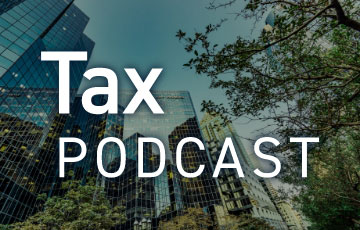The shift to hybrid and remote work models, accelerated by the COVID-19 pandemic, has transformed many workplaces, especially in the professional services industry. While hybrid work arrangements provide greater flexibility and access to a broader talent pool, they also introduce significant challenges in state and local tax (SALT) compliance.
As employees work across multiple locations, businesses must carefully track work sites, employee locations and revenue sources to maintain compliance and avoid unexpected tax liabilities.
The Remote and Hybrid Work Environment: Challenges and Opportunities
While remote and hybrid work offer both flexibility and opportunities for employers and employees, it also creates potential remote work tax risks if not managed strategically. Businesses that fail to track employee locations accurately may inadvertently trigger new tax obligations, leading to unforeseen compliance burdens.
Challenge: Work-From-Home Employee Income Taxation
The presence of a remote employee in a state generally establishes physical presence or substantial nexus. For income tax purposes, nexus establishes a filing requirement for the business and, in the case of a flow-through entity, for its members as well. During the COVID-19 pandemic, many states issued alerts or rulings stating the presence of a remote employee would not create nexus in a state. However, those rulings were only applicable during limited periods of 2020 and 2021.
State income tax is computed by starting with federal taxable income, applying certain state adjustments, apportioning the income by an apportionment factor and applying the applicable state tax rate. In most states, the apportionment factor consists of only the sales factor, or the sales factor is more heavily weighted. A smaller number of states average property, payroll and sales factors in computing the apportionment factor.
When computing the sales factor, one of the most complex aspects of hybrid work taxation is determining how the sales will be sourced, which can include where customers receive the benefits of those services and where services are performed. Of course, each state has its own rules for sourcing revenue and establishing tax liabilities, requiring businesses to conduct careful state-by-state evaluations. Additionally, the rapid adoption of virtual work technologies has changed how services are delivered, consumed and taxed, making traditional revenue sourcing methodologies less straightforward.
Example:
A professional services firm based in North Carolina that has employees working remotely in multiple states may unknowingly establish nexus in those states, requiring additional income tax filings. Without proactive planning, the firm could face penalties for failing to comply with tax laws in jurisdictions where it was unaware of its obligations.
Revenue Sourcing Methodologies
A firm’s tax obligations depend on how states determine where revenue is sourced. Market-based sourcing and cost-of-performance sourcing are the two primary revenue sourcing methodologies.
Market-Based Sourcing
This method assigns revenue as generally based on where the customer receives the benefit of the service. It aligns tax obligations with the firm’s client base and is the required approach in many states.
For businesses with remote employees, identifying where customers benefit from a service can become increasingly complex. Employees may perform services in one state while clients receive the benefit in another, creating potential tax exposure across multiple jurisdictions if the methods vary. In addition, if the client is in multiple states, the benefits may be received in multiple states, depending on the nature of the work.
Cost-of-Performance Sourcing
In states that use the cost-of-performance method, revenue is sourced based on where the income-producing activity occurs based on the costs of performing the service. Hybrid work arrangements complicate this approach, as remote employees may shift cost allocations across multiple states.
Tracking payroll costs accurately is essential for compliance as payroll costs are the predominant costs for a professional services firm. Some states allow revenue to be sourced there only if the majority of service performance costs occur within their borders; other states may pro-rate the revenue based on relative costs.
When employees are dispersed, determining where a business is required to source revenues based on this test depends on how the state requires taxpayers to sources their sales and how a business tracks where work is performed for each client.
Challenge: Remote Worker Payroll Tax
The shift to hybrid work has also introduced significant payroll tax challenges. Employers must comply with multistate withholding requirements, state residency rules, and "convenience of the employer" regulations, all of which vary by jurisdiction. For instance, many states require withholding on wages paid to employees who travel to another state to perform services, even if there for only a limited number of days. Several states use 30 days as a threshold, but some states require withholding from day one.
If an employee primarily works remotely in one state, but travels to other states, the business could be subject to withholding tax liabilities in those other states, and the employee to personal income tax liabilities. In addition, those businesses may be required to file withholding tax returns in additional states (or different states) from where it reports those employees for unemployment tax purposes.
Some states impose "convenience of the employer" rules, which require employees to pay income tax to their employer’s home state, even if they work remotely from another location. This can create double-taxation risks, particularly for employees working across state lines.
Example:
A consulting firm headquartered in New York has employees working remotely in Illinois. Under New York’s convenience of the employer rule, these employees may still owe New York income tax, even if they never set foot in the state. Without proper payroll tracking, the firm and the individual risk misreporting tax liabilities.
To avoid compliance issues, firms need robust tracking systems to monitor employee work locations and properly allocate payroll taxes. Whether a business processes payroll itself or uses a payroll provider, this information must be accurate and timely to reduce extra work taxes, penalties and interest costs.
Opportunity: Sales Tax Exemption
Hybrid work not only introduces challenges but also presents tax-saving opportunities for companies, particularly when employees in multiple states access company software. Some jurisdictions will attempt to tax the software based on the bill-to location but may allow a multiple points-of-use (MPU) exemption or allow the company to allocate the costs based on usage.
The MPU exemption is allowed by four states and occurs when the purchaser gives the vendor an exemption certificate that makes the sale exempt but shifts the burden to the purchaser to pay the use tax based on relative usage in the state compared to everywhere. For the allocation process, which is allowed by more jurisdictions, the purchaser gives the vendor a statement or signed affidavit of relative usage.
The MPU exemption and allocation process allows businesses to allocate sales tax based on where software is used, rather than where it is purchased as indicated by the bill-to address. This allocation may lead to potential refunds or reduced tax liabilities if licenses are allocated across multiple states.
Example:
A law firm headquartered in New York purchases cloud-based software that is used by employees in both New York and Georgia. Without tracking where the software is utilized, the firm may overpay New York sales tax on the entire purchase, even though Georgia may exempt the same software from taxation. By documenting the distribution of software usage, the firm can claim a refund on overpaid taxes and allocate costs more efficiently.
Understanding which states offer MPU exemptions, or allow allocations, and how to claim exemptions requires careful documentation. Cherry Bekaert works with businesses to identify refund opportunities, document tax-exempt use cases and reduce unnecessary sales tax expenses.
Let Us Be Your Guide
Managing state and local tax compliance in a hybrid work environment requires specialized knowledge and a proactive approach. Cherry Bekaert’s State & Local Tax (SALT) team is dedicated to assisting businesses with challenges that arise from multistate nexus and revenue sourcing to payroll tax compliance and sales tax optimization. Our professionals stay ahead of changing tax regulations, helping manage obligations effectively and uncover opportunities to reduce unnecessary tax burdens.






